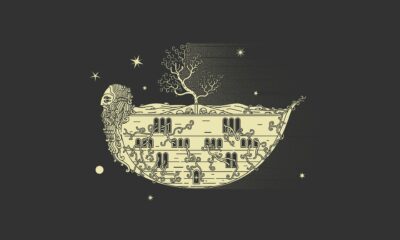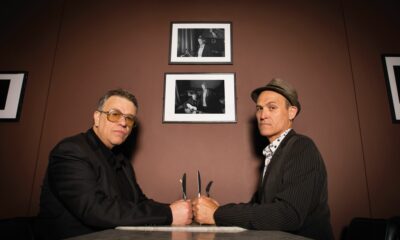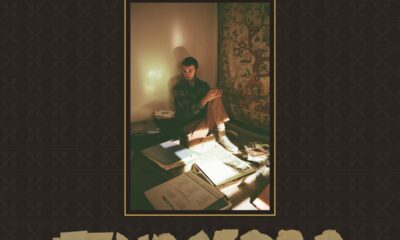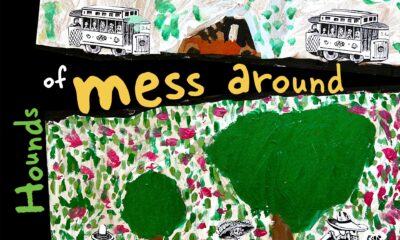Album Review
Ulver – ‘Flowers of Evil’ [Album Review]
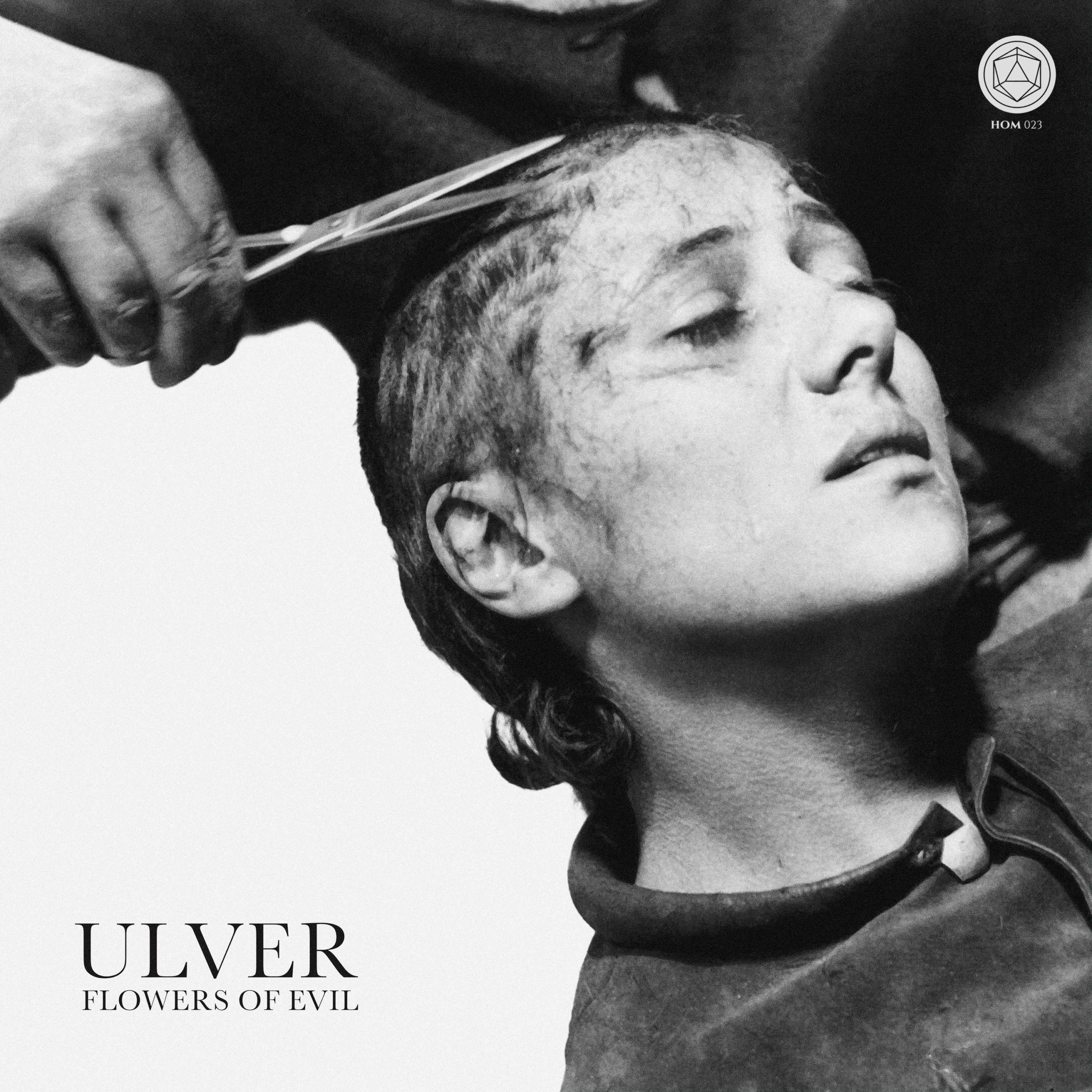
Way back in 1857, when Baudelaire published his poetic denigration of Parisian excess and opulence, Les Fleurs du Mal, he could not have had the faintest concept of what his work would one day mean to artists occupying the left field of musical expression. From record labels to individual songs, to lyrical inspirations to album names, the presence of this erotically-charged anti-celebration of decadence has been felt almost everywhere. The latest of these, Ulver’s Flowers of Evil, is a suitable homage, dealing too with unpopular themes and antisocial sentiments, all tied together in a neat package of apocalyptic pop par excellence.
The descriptor I just applied – apocalyptic pop – is but one of the masks Ulver wears; over the years, I’ve heard this Norwegian outfit described as dark electronics, coldwave, contemporary new wave, anti-pop, post-metal, avant-garde, experimental, doom dance (what a name for a genre!) and just about anything else you could imagine. The beauty of this overwhelming variety is that there’s bound to be something for just about every musical taste, and, on top of that, it’s just done so damn tastefully that it’s practically impossible not to enjoy the music, no matter how unsettling the subject matter gets. Toes will be tapping, make no mistake, even when confronted by lyrical themes inspired by human trafficking and post-Cold War exploitation.
Russian doll, for example, illustrates this as a “story within a story,” a babushka doll hiding a dark secret in an upbeat exterior.
This should come as no surprise, given Ulver’s history. From black metal origins (the widely acclaimed Bergtatt from 1995 is considered one of the best examples of the second wave), through to clever experimental collaborations (2013’s Messe I.X–VI.X partnered with the Troms Chamber Orchestra) and even soaring concept albums (as is immediately apparent in the title of 2017’s The Assassination of Julius Caesar), this is a band that keeps pushing the envelope: most likely at the urging of founder/vocalist Kristoffer Rygg.
Even the cover art – a still image of actress Renée Jeanne Franconetti having her head shaved during her 1928 performance in the titular role of Carl Theodor Dreyer’s La Passion de Jeanne d’Arc – shows a fundamental appreciation for the more disturbing aspects of great, memorable art. This is evident throughout Flowers of Evil, which ranges in theme from war (nuclear and otherwise) to abuse to cults (the David Koresh-inspired “Armageddon 1993” is my personal pick of the album) to childhood memories, all shrouded in imagery that itself ranges from merely odd to downright unsettling. Or, as Rygg puts it himself in “Hour of the Wolf,” nightmare fuel images that include “The vampire at the door; the night of broken glass; the sprinkling of the earth; the woman without a face.”
The protest narrative presented in “Little Boy” is, like most of this album, delivered against such a misleadingly upbeat musical backdrop that the story becomes a far less bitter pill to swallow.
In terms of the music itself, it is all too easy to compare one electronic artist with another: 1980’s tones of New Order, Erasure and Depeche Mode vie for first place, all the while competing with an undercurrent of more contemporary counterparts (like Goldfrapp or Diary of Dreams) – all down to synth presets and instrument tones, rather than actual melodies or rhythms. Instead, viewing the album in terms of its total style becomes a more valuable comparison. Whether at the micro-scale, track by track, or the macro in its holistic entirety, there is one overriding likeness I have not been able to shake since my very first playthrough – and it’s an impressive one. From the philosophical, practically religious slant with which Ulver kicks the album off, “One Last Dance,” past the anti-violence “Machine Guns and Peacock Feathers” through the yearning-for-better-days album closer, “Nostalgia,” everything speaks of one artist – and one section of his work – in particular.
The artist in question is none other than David Bowie, another prolific songwriter with no fear of experimentation, and the period of his career would be the closing chapter: Flowers of Evil closely matches the tension, dissatisfaction and downright depressiveness of the Thin White Duke’s last three albums (Reality, 2003; The Next Day, 2013; and Blackstar, 2016). While I’m sure the comparison may surprise some, the sense of isolation, despair and general malaise with the status quo, as well as the actual musical performance in places, is unmistakable – and unshakeable – for me.
“Norway, thirty-five years ago…” is a very telling lyric to start a song off with, and both the music and thematic content capture the melancholic reminiscence perfectly.
Thankfully, unlike David Bowie, Kristoffer Rygg did not die immediately after releasing this record, and it leaves me with a sense of still greater things to come. Even so, Flowers of Evil is a marvellous achievement and, for the first time in nearly a decade, my top contender for album of the year is not metal. Having said that, however, do not assume that it won’t be a hit with a vast metal audience: clever songwriting, dark themes, and a proud metal history go a long way to swaying an older, wiser fanbase who are here for the music, not the image.
Flowers of Evil Track Listing:
1. One Last dance
2. Russian Doll
3. Machine Guns and Peacock Feathers
4. Hour of the Wolf
5. Apocalypse 1993
6. Little Boy
7. Nostalgia
8. A Thousand Cuts
Run Time: 40:01
Release Date: August 28, 2020
Record Label: House of Mythology
-
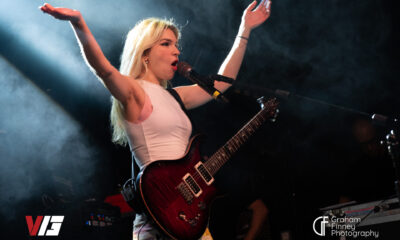
 Alternative/Rock6 days ago
Alternative/Rock6 days agoThe Warning Shake the Foundations of a Sold-Out Leeds Stylus [Photos]
-

 Music2 weeks ago
Music2 weeks agoTake That (w/ Olly Murs) Kick Off Four-Night Leeds Stint with Hit-Laden Spectacular [Photos]
-

 Alternative/Rock6 days ago
Alternative/Rock6 days agoThe V13 Fix #011 w/ Microwave, Full Of Hell, Cold Years and more
-

 Alternative/Rock2 weeks ago
Alternative/Rock2 weeks agoThe V13 Fix #010 w/ High on Fire, NOFX, My Dying Bride and more
-

 Features2 weeks ago
Features2 weeks agoTour Diary: Gen & The Degenerates Party Their Way Across America
-

 Indie6 days ago
Indie6 days agoDeadset Premiere Music Video for Addiction-Inspired “Heavy Eyes” Single
-

 Folk7 days ago
Folk7 days agoKatherine Perkins Strikes the Right Tone with Her “Hold On” Music Video Premiere
-

 Country1 week ago
Country1 week agoBrooke Ashton Chats About Her “Someone” Single, Creative Process, and More!

